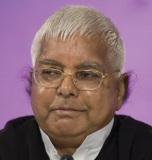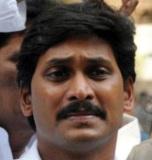Archives
JUDICIAL ACTIVISM
Yet again, on July 10th, 2013, the Supreme Court of India gave unto itself a major role in correcting the ills of Indian democracy.
In a landmark ruling towards effecting cleansing of politics and fighting the criminilisation of politics, the Supreme Court barred convicted MPs and legislators from Parliament and State Assemblies as it struck down as ultra vires a provision of the Representation of the People Act 1951 that protects a lawmaker from disqualification even after conviction in a criminal case.
The ruling, obviously, has unsettled the political class, and is likely to be challenged by political parties or could be referred to a larger bench by the President of India for further scrutiny.
“This judgement is to be welcomed at face value. But there are wheels within wheels, politicians may seek a review,” says senior journalist Shivesh Garg adding that the leaders like Lalu Prasad, facing a serious CBI probe for a scam that rocked Bihar in the 1990s, could face an eternal hurdle to enter State Legislature or Parliament.
|
Crime - Politics Nexus An analysis by the Association for Democratic Reforms (ADR) and National Election Watch has revealed that:
|
The section 8(4) of the People’s Representation Act allows a convicted lawmaker to remain in office (that is retain the membership as MP and State MLA) till the pendency of appeal against their conviction in the higher courts.
“We hold that the section is ultra vires and that the disqualification takes place from the date of conviction,” said a Bench of Justices A K Patnaik and S J Mukhopadhaya. “If a convicted person has no right to vote, he has no right to contest,” they ruled rather firmly.
However, skepticism about such a strict provision clouds political parties with the refrain being that it would lead to people and political rivals levying false charges against politicians to prevent them from contesting. The argument is not without good reason.
The Law minister and ruling Congress leader Kapil Sibal initially said the government will “study the judgment” and examine its impact.
The right wing BJP leader Ravi Shankar Prasad seemed to agree with him for a change and said, “It is a very important issue with legal complexity and we would not like to comment on this without reading the judgment.”
However, another BJP leader Meenaskshi Lekhi has welcomed the ruling saying it was a positive step forward. DP Tripathi of Maharashtra - based NCP of Sharad Pawar said: “I welcome the judgment. A politician should be prevented from contesting even if he has been convicted for one day and not acquitted by a higher court.”
 Actually, the political class sees that implementing such a law will only open a Pandora’s Box as according to the judgement, besides the MPs and MLAs, even panchayat members convicted by court for 2 years or more can be disqualified.
Actually, the political class sees that implementing such a law will only open a Pandora’s Box as according to the judgement, besides the MPs and MLAs, even panchayat members convicted by court for 2 years or more can be disqualified.
This ruling predictably welcomed by activists and the Election Commission could see several lawmakers in both Parliament and State Assemblies as well as panchayats lose their seats. The court, however, said that its decision will not apply to lawmakers who have been convicted and have filed their appeals in the higher courts before the pronouncement of this verdict. “
Anil Bairwal, the national coordinator of the election watchdog Association for Democratic Reforms, told Eastern Panorama that “According to details submitted by candidates themselves to the Election Commission there are 1,460 serving lawmakers across India facing criminal charges. Therefore, the Supreme Court ruling is a significant step and a milestone towards cleaning up Indian politics.”
The court’s decision has also come as a refreshing development for the country’s Election Commission, which has been pushing for this amendment (striking off the controversial section) in the law.
“The Election Commission had proposed several reforms and these included striking off this section as well as disqualifying persons found guilty by a ‘commission of inquiry’ from contesting elections. But the reforms were never brought in irrespective of the party in power,” a senior official told this magazine.
from contesting elections. But the reforms were never brought in irrespective of the party in power,” a senior official told this magazine.
Officials also point out that way back in 1998 the Law Commission had also recommended that harsher measures must be implemented to discourage convicted people sitting in legislatures taking advantage of a legal loophole.
Even earlier this year in January 2013, the Justice Verma committee, which was set up to recommend adequate legislative measures for crimes against women in the wake of last December’s gangrape of a medico student, had observed that filing of chargesheet and cognizance by a court was sufficient for disqualification of a candidate. It also recommended that candidates should be disqualified for committing sexual offences.
According to a study by two NGOs, National Election Watch and Association of Democratic Reforms (ADR), nearly 150 of the 543 current members of Parliament have criminal cases pending against them, while a survey based on poll affidavits states that some 15 MPs have at least one murder case each against them.
The apex court’s verdict came on the petitions filed by one social worker Lily Thomas and NGO Lok Prahari who had sought striking down of various provisions of the Act.
But within two to three days, the government sources indicated that the verdict will be challenged or at least referred to a bigger bench. The government has proposed an all  party meeting and this could take place sooner than later.
party meeting and this could take place sooner than later.
Sources told Eastern Panorama that the supporting parties of the government, the Samajwadi Party and the BSP have already asked the government to refer the matter to the constitutional bench. “We believe the Apex court’s judgement was against the principle of natural justice and it can be challenged after building a political consensus,” a top source said.
Sources further said that in a one – on - one meeting with the Prime Minister Dr. Manmohan Singh, the Samajwadi party chief Mulayam Singh Yadav made this a condition to continue extending support to the otherwise dwindling strength of the UPA regime.
| “This judgement is to be welcomed at face value.But there are wheels within wheels,politicians may seek a review,” |
In retrospect, the bench of Justices A K Patnaik and S J Mukhopadhayay upheld a Patna highcourt judgment agreeing that if a jailed person cannot vote, a jailed person cannot contest elections either. The apex court was hearing an appeal filed by the Chief Election Commissioner and others challenging a Patna high court order barring people in police custody to contest polls.
According to political observers, the judgment of the Supreme Court could affect leaders like Jaganmohan Reddy of YSR Congress, former Haryana Chief Minister Om Prakash Chautala and his MLA son Ajay Chautala, former Jharkhand Chief Minister Madhu Koda and former Haryana minister Gopal Kanda among others.

